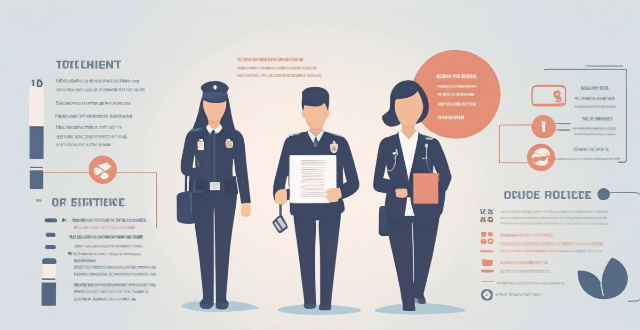This article discusses various policies that low-income countries can implement to promote gender equality and women's empowerment. It highlights the importance of education, healthcare, economic development, legal protections, and cultural norms in achieving these goals. The article suggests policies such as equal access to quality education, vocational training programs, reproductive health services, microfinance programs, non-discriminatory hiring practices, protection from violence, property rights, positive media representation, and community mobilization. By implementing these policies, low-income countries can create a more inclusive and equitable world for all genders.

Policies for Promoting Gender Equality and Women's Empowerment in Low-Income Countries
Introduction
Gender equality and women's empowerment are fundamental human rights that should be promoted and protected by all countries, including low-income ones. However, achieving these goals can be challenging due to cultural, social, and economic barriers. In this article, we will discuss some policies that low-income countries can implement to promote gender equality and women's empowerment.
Education Policies
Access to Quality Education
- Equal Access: Ensure that both boys and girls have equal access to education at all levels.
- Quality Education: Invest in quality education that includes comprehensive sexuality education, gender equality, and women's rights.
- Teacher Training: Train teachers on gender sensitivity and bias awareness to create an inclusive learning environment.
Skill Development Programs
- Vocational Training: Offer vocational training programs specifically designed for women to enhance their skills and increase their employability.
- Entrepreneurship Courses: Introduce entrepreneurship courses to encourage women to start their own businesses and become financially independent.
Healthcare Policies
Reproductive Health Services
- Access to Contraception: Provide easy access to contraception methods to enable women to plan their families and avoid unintended pregnancies.
- Maternal Health Care: Improve maternal health care services, including prenatal care, skilled birth attendance, and postnatal care.
Sexual and Reproductive Rights Education
- Sex Education: Include comprehensive sex education in school curriculums to educate young people about their sexual and reproductive rights.
- Awareness Campaigns: Conduct awareness campaigns on sexual and reproductive health issues to reduce stigma and discrimination.
Economic Policies
Microfinance Programs
- Loans for Women: Provide microfinance loans specifically for women to support their small businesses and entrepreneurial ventures.
- Financial Literacy Training: Offer financial literacy training to help women manage their finances effectively and make informed decisions about investing and saving.
Labor Market Policies
- Non-Discriminatory Hiring Practices: Implement non-discriminatory hiring practices to ensure that women have equal opportunities in the labor market.
- Maternity Leave Policies: Introduce maternity leave policies that allow women to take time off work without losing their jobs or facing financial hardship.
Legal Policies
Protection from Violence
- Legal Framework: Establish a legal framework that protects women from all forms of violence, including domestic violence, sexual harassment, and human trafficking.
- Support Services: Provide support services for survivors of violence, such as counseling, shelters, and legal aid.
Property Rights
- Land Ownership: Ensure that women have equal rights to own and inherit property, which can increase their economic independence and bargaining power within households.
- Inheritance Laws: Revise inheritance laws to guarantee that women receive an equitable share of family assets upon the death of a spouse or family member.
Cultural Policies
Media Representation
- Positive Portrayals: Promote positive portrayals of women in media, highlighting their achievements and contributions to society.
- Countering Stereotypes: Challenge harmful gender stereotypes through media campaigns and educational initiatives.
Community Mobilization
- Women's Groups: Support the formation of women's groups and networks to foster solidarity and collective action around issues affecting women.
- Community Leadership Roles: Encourage women's participation in community leadership roles to increase their influence and decision-making power at the local level.
In conclusion, implementing these policies can help low-income countries promote gender equality and women's empowerment by addressing key areas such as education, healthcare, economic development, legal protections, and cultural norms. By working together to break down barriers and challenge discriminatory practices, we can create a more inclusive and equitable world for all genders.